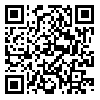Articles accepted at the time of publication
Back to the articles list |
Back to browse issues page
Department of Educational Sciences, Farhangian University, P.O. BOX 14665-889, Tehran, Iran. Email: kamalnosrati1367@cfu.ac.ir , kamalnosrati1367@yahoo.com
Abstract: (1953 Views)
The aim of this study is to investigate the fundamentals of Wittgenstein's theory of language games and its role in overcoming false preconceptions and biases. This qualitative research utilized a conceptual analysis and inductive method to review the related literature. In the findings section, by examining the theoretical foundations of Wittgenstein's linguistic games, we first critique the shortcomings of early philosophy such as the absoluteness of affairs, a purely analytical approach and ostensive definition, and then, the characteristics of language such as sociality, variability and discussion of its use and instrumental role were mentioned. Also, while expressing the mission of Wittgenstein's philosophy, the position and cause of the centrality of language in his philosophy was revealed and finally, due to the new perspectives on the theory of language games, and based on it, as well as Wittgenstein's way of working in later philosophy, a set of strategies was proposed to overcome biases. Overcoming the sense of essentialism, perspicuous representation, self-imposed exile, experiencing different occupations and professions, emphasis on differences, and eventually designing appropriate questions are among these strategies. As a result, it can be acknowledged that many false beliefs and preconceptions are passed on through language to future generations, and therefore many issues have survived throughout history. Therefore, incorrect concepts and ideas should be identified in the language and their repetition should be avoided by removing them.
Keywords: Late Wittgenstein, Theory of language games, Preconceptions and biases, Educational consequences
Article Type: مقالات علمی پژوهشی |
Subject:
Philosophy of language
Send email to the article author
| Rights and permissions | |
 |
This work is licensed under a Creative Commons Attribution-NonCommercial 4.0 International License. |








